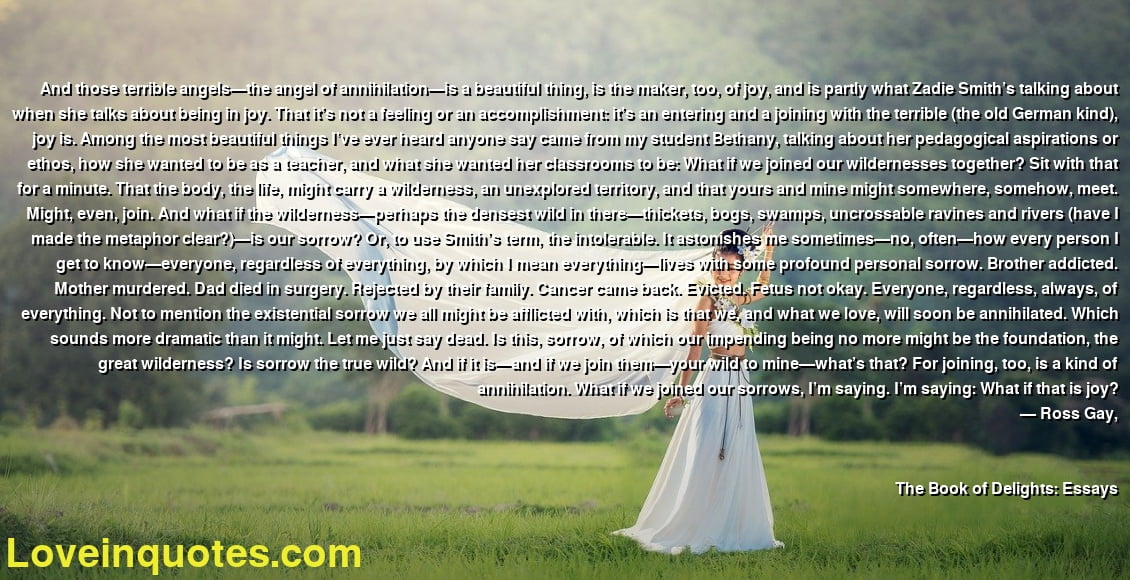
And those terrible angels—the angel of annihilation—is a beautiful thing, is the maker, too, of joy, and is partly what Zadie Smith’s talking about when she talks about being in joy. That it’s not a feeling or an accomplishment: it’s an entering and a joining with the terrible (the old German kind), joy is. Among the most beautiful things I’ve ever heard anyone say came from my student Bethany, talking about her pedagogical aspirations or ethos, how she wanted to be as a teacher, and what she wanted her classrooms to be: What if we joined our wildernesses together? Sit with that for a minute. That the body, the life, might carry a wilderness, an unexplored territory, and that yours and mine might somewhere, somehow, meet. Might, even, join. And what if the wilderness—perhaps the densest wild in there—thickets, bogs, swamps, uncrossable ravines and rivers (have I made the metaphor clear?)—is our sorrow? Or, to use Smith’s term, the intolerable. It astonishes me sometimes—no, often—how every person I get to know—everyone, regardless of everything, by which I mean everything—lives with some profound personal sorrow. Brother addicted. Mother murdered. Dad died in surgery. Rejected by their family. Cancer came back. Evicted. Fetus not okay. Everyone, regardless, always, of everything. Not to mention the existential sorrow we all might be afflicted with, which is that we, and what we love, will soon be annihilated. Which sounds more dramatic than it might. Let me just say dead. Is this, sorrow, of which our impending being no more might be the foundation, the great wilderness? Is sorrow the true wild? And if it is—and if we join them—your wild to mine—what’s that? For joining, too, is a kind of annihilation. What if we joined our sorrows, I’m saying. I’m saying: What if that is joy?
― Ross Gay,
The Book of Delights: Essays
Like Ross Gay?
Buy Ross Gay products
[easyazon_link keywords=”Ross Gay” locale=”US” tag=”bestsellerlisting-20″] [/easyazon_link]
[/easyazon_link]
Do you Like Positive words, poetry and words to describe someone you love?
Check out
| https://positivewordsdictionary.com/ |
| https://wordsthatrhymewith.com/ |
| https://wordstodescribesomeone.com/ |
